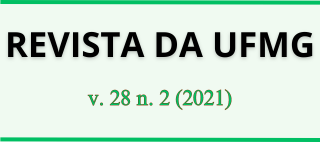O futuro da morte e a biopotência
DOI:
https://doi.org/10.35699/2316-770X.2021.32454Palavras-chave:
Morte, Linguagem, Neoliberalismo, Biopolítica, BiopotênciaResumo
Neste ensaio, reflito sobre o sentido da morte a numa perspectiva inicial biopolítica, de modo a apontar algumas modificações no regime de sua percepção contemporânea e para o que pode vir a ser experimentado como “privatização da morte” por meio de uma série de figuras — tais como a criogenia, o famoso lema franquista “viva la muerte” e o phármakon grego. Evidencio a captura da morte por parte do discurso e o paradoxo das práticas econômicas neoliberais que nos afastam da vida e ruma-nos a um desastre sem precedentes, somente evitado por uma reconfiguração de nossas formas de vida, o que proponho a ideia de biopotência.
Referências
AGAMBEN, Giorgio. Categorias Italianas: estudos de poética e literatura. Trad. Carlos Eduardo Schmidt Capela e Vinícius Nicastro Honesko. Florianópolis: Editora da Universidade Federal de Santa Catarina, 2014.
AGAMBEN, Giorgio. Homo sacer: o poder soberano e a vida nua I. Trad. Henrique Burigo. Belo Horizonte: Editora da Universidade Federal de Minas Gerais, 2007.
BICHAT, Xavier. Recherches physiologiques sur la vie et sur la mort. Genève/Paris/Bruxelles: Alliance Culturelle du Livre, 1962.
BORGES, Jorge Luis. El hacedor. Buenos Aires: Emecé, 1960.
CARROLL, Lewis. Sylvie and Bruno concluded. London: Macmillan and Co., 1895.
CHATWIN, Bruce. O rastro dos cantos. Trad. Bernardo Carvalho. São Paulo: Companhia das Letras, 1996.
COCCIA, Emanuele. A vida das plantas: uma metafísica da mistura. Trad. Fernando Scheibe. Florianópolis: Cultura e Barbárie, 2018.
COLLADO, Francis García; MATOS, Andityas Soares de Moura Costa. Más allá de la biopolítica: biopotencia, bioarztquía, bioemergencia. Documenta Universitaria: Girona, pp. 59-123, 2020.
DELEUZE, Gilles; GUATTARI, Félix. L’anti-Œdipe: capitalisme et schizophrénie. Paris: Les Éditions de Minuit, 1972.
DERRIDA, Jacques. A farmácia de Platão. Trad. Rogério Costa. São Paulo: Iluminuras, 2020.
EPICURO. Cartas & máximas principais: “como um deus entre os homens”. Trad. Maria Cecília Gomes dos Reis. São Paulo: Companhia das Letras, 2020.
ESPOSITO, Roberto. Bios: biopolítica e filosofia. Trad. M. Freitas da Costa. Lisboa: edições 70, 2010.
ESPOSITO, Roberto. El dispositivo de la persona. Trad. Heber Cardoso. Buenos Aires: Amorrortu, 2011.
FOUCAULT, Michel. Em defesa da sociedade: curso no Collège de France (1975-1976). Trad. Maria Ermantina Almeida Prado Galvão. São Paulo: Martins Fontes, 2005.
FOUCAULT, Michel. Segurança, território, população: curso no Collège de France (1977-1978). Trad. Eduardo Brandão. São Paulo: Martins Fontes, 2008.
HARDT, Michael; NEGRI, Antonio. Multitude: war and democracy in the age of empire. New York: Penguin, 2004.
HEIDEGGER, Martin. Carta sobre el humanismo. Trad. Helena Cortés y Arturo Leyte. Madrid: Alianza Editorial, 2000.
LEVINAS, Emmanuel. A violência do rosto. Trad. Fernando Soares Moreira. São Paulo: Loyola, 2014.
LONG, Anthony A.; SEDLEY, David N. (orgs.). The hellenistic philosophers. Vol. 1: translations of the principal sources, with philosophical commentary. Cambridge: Cambridge University, 2006.
MANCUSO, Stefano. A revolução das plantas. Trad. Regina Silva. São Paulo: Ubu, 2019.
MBEMBE, Achille. Necropolítica. Arte & Ensaio: Revista do PPGAV/EBA/UFRJ, n. 32, pp. 123-151, dezembro 2016.
PRECIADO, Paul B. Testo Junkie: sex, drugs, and biopolitics in the pharmacopornographic era. New York: The Feminist Press at the City University of New York, 2013.
SCOTT, James C. Against the grain: a deep history of the earliest states. New Haven: Yale University, 2017.




